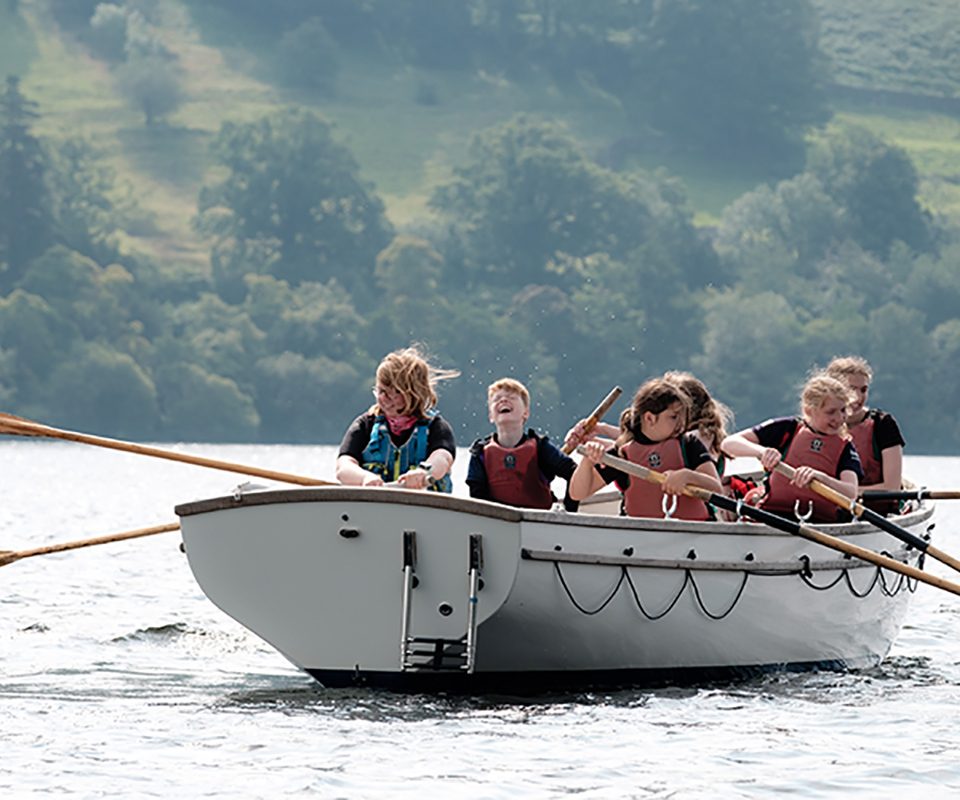Thank you for donating to The Outward Bound Trust!. Your first payment has been authorised and your subscription has been setup!
If you need to change your subscription details, please call us on +44 (0) 1931 740 000.
Sorry, it looks like something went wrong whilst your payment was being processed. Please try again.
If you need help, please call us on +44 (0) 1931 740 000.
Young people and covid
Free report: Young People and COVID-19: the role of the outdoors for their recovery, resilience and wellbeing.
Children and young people across the UK have had their lives turned upside down by the COVID-19 pandemic.
Almost every young person has had to adjust to dramatic changes in their education or employment, routine, home and social life.
They will likely continue to feel the impacts of this crisis of a generation well into their adult life. In this report we look at how this is our once in a generation chance to allow the countryside to reach its full potential for all young people who are struggling right now.
Download the report

Report Executive Summary
Children and young people across the UK have had their lives turned upside down by the COVID-19 pandemic.
Almost every young person has had to adjust to dramatic changes in their education or employment, routine, home and social life. All of them now need support to readjust and reconnect.
Young people have been disproportionately affected socially and economically by the pandemic. They will likely continue to feel the impacts of this crisis of a generation well into their adult life. Accordingly, we see this as our once in a generation chance to allow the countryside to reach its full potential for all young people who are struggling right now.
Prior to COVID-19, the mental health of our young people was already on a precipice. There is an increasing prevalence of mental disorders, and the 2019 Princes Trust Youth Index suggests that young people’s wellbeing has declined significantly – reaching its lowest point since the study was first commissioned in 2009. Young people report feeling overwhelmed by political and economic uncertainty and the lack of control over their futures. The turbulence of childhood and adolescence only adds to these sources of stress and anxiety.
Our recent report highlights two key barriers to promoting health and wellbeing, related to some distinct lifestyle changes:
- Young people are spending more time indoors and are less likely to be physically active, reducing the opportunity for them to benefit from the positive correlation between physical health and mental wellbeing; and
- Young people are spending much more time on social media, which has been linked to increased rates of anxiety, depression and poor sleep.
The health and wellbeing benefits of nature and the outdoors are well documented, providing a stimulating and restorative environment, enabling positive social contact and encouraging physical movement. But there’s lots of inequality in people’s ability to access the outdoors, and those who have least access to nature have the lowest levels of physical health and mental wellbeing.
The UK lockdown has heightened these barriers, imposed new ones and exacerbated inequalities across young people.
Throughout this report, we'll explore a number of problems that young people are facing as a result of COVID-19. Issues that will negatively impact them now, in their immediate future and longer term. As we emerge from lockdown, in order to support young people to deal with these challenges and minimise the long term effects, we must teach them how to protect their wellbeing, complement their learning and training, and add value and support where other options are limited. That’s why we’re championing the role of nature and outdoor learning in supporting young people’s transitions into a post-COVID world.
Outdoor education is a form of education that engages young people and helps to ensure that no young person falls through the gaps. It focuses on developing essential skills - those highly transferable skills that everyone needs to support their use of specialist knowledge and technical skills. These skills (including problem solving, leadership and teamwork) have been linked to improved academic attainment, professional competencies, self-efficacy and social and emotional wellbeing. Post-pandemic, outdoor learning is an aspect of young people’s education that will be more relevant than ever. We know that some groups of young people have been hit harder than others, and outdoor education, in its varying guises, provides a learning setting that can be adapted to meet the needs of all participants.
By its very nature, operating in natural environments outside, outdoor education is a means of both positively affecting wellbeing and attainment, and reducing the potential for the transmission of COVID-19 when safety guidelines are followed. At Outward Bound we’re adapting how we work – to provide small group residential programmes for apprentices and graduates, taking Outward Bound to schools across the UK until students can come to us and offering 1000 free days of adventure at our centres during the school holidays for young people.
We’re showing that even during a global pandemic, learning in the outdoors can be undertaken safely. Our style of outdoor education can be designed and delivered to provide targeted support that builds confidence and resilience in young people, particularly those who are, or have become vulnerable as a result of the pandemic. It can provide safe and flexible learning spaces both on- and off-site that support blended learning (mixing remote and face-to-face delivery) and social distancing.
The mountains, rivers, flora and fauna have been unaffected by the pandemic and they are waiting for us to return to them. Lockdown has heightened our appreciation of the natural world and this is an opportunity to integrate this appreciation into our education models more holistically. This is our ‘once in a generation chance’ to connect young people with nature and ensure it reaches its potential for all those struggling right now.